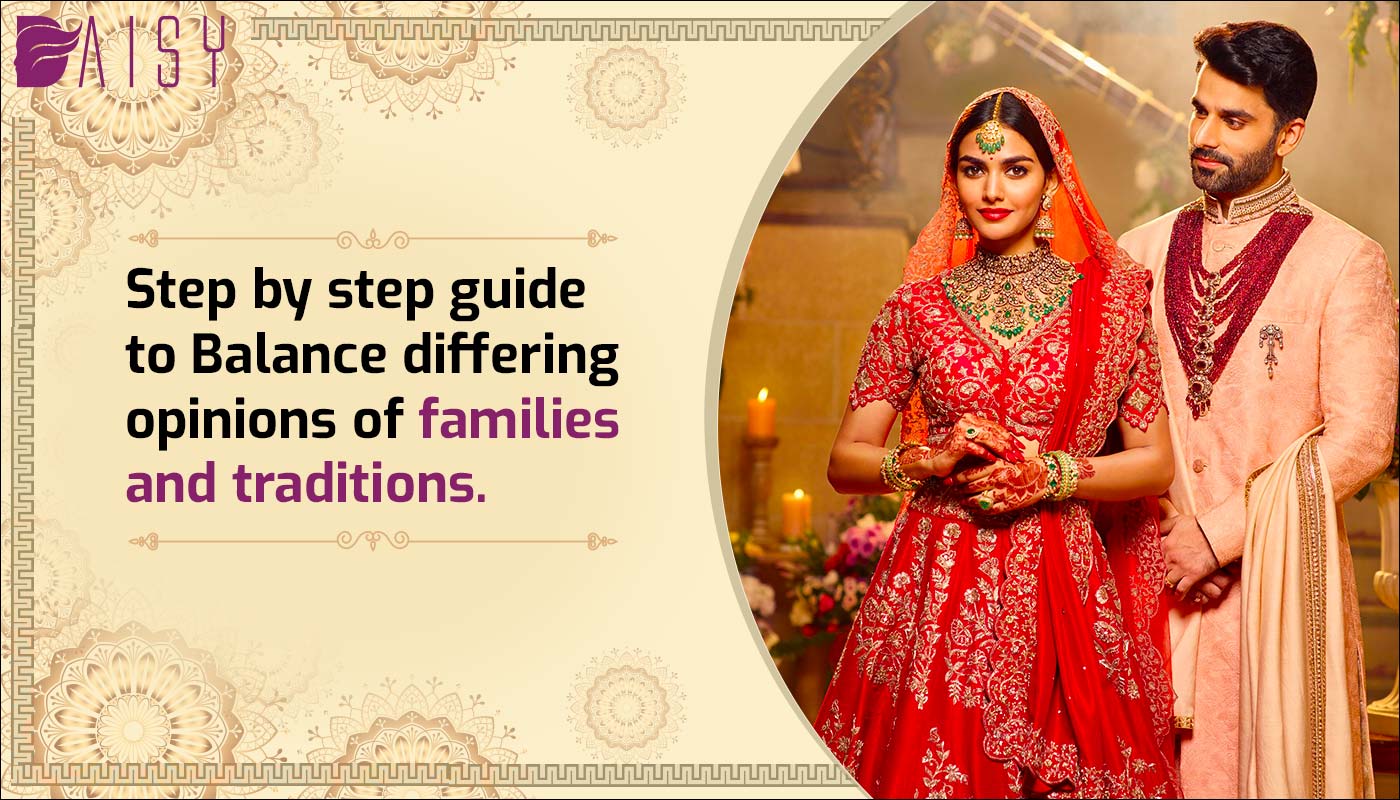Weddings in India are not just a union of two souls; they are a celebration of diverse cultures, traditions, and families coming together in joyous harmony. However, amidst the vibrant festivities, conflicting opinions and varying traditions among families can sometimes pose challenges. Negotiating these differences with grace and sensitivity is essential to ensure a harmonious and memorable celebration for everyone involved.
Open Communication:
Initiate open and respectful communication with both families early in the wedding planning process. Encourage discussions where everyone can express their opinions, concerns, and expectations regarding the ceremonies, rituals, and overall celebration. Put your thoughts into it, understanding the values and desires your elders have. Listening attentively to each family’s perspectives fosters empathy and understanding. Acknowledge the significance of their customs and the emotions attached to them.
Identify Key Traditions:
Understand and compile a list of significant rituals and traditions from both sides. Recognize the importance of these customs to each family and their role in the wedding. This step will help in prioritizing and finding common ground between the differing traditions. The changing role of families in Indian wedding culture involves finding a delicate balance between honouring traditions and embracing modernity.
Seek Compromise:
Encourage compromise where feasible. Identify areas where blending or adapting traditions could be possible without compromising their essence. For instance, combining elements of different rituals or finding a middle ground that honors both families’ customs. Be flexible during the planning process. Embrace the spontaneity of cultural diversity, being open to unforeseen adjustments. Organize events or sessions where both families can learn and appreciate each other’s traditions. This promotes mutual respect and understanding.
Respectful Inclusion:
Embrace inclusivity by integrating various elements into the ceremonies – be it rituals, music, decor, or cuisine. Create a beautiful fusion that respects and honors the diversity of traditions, celebrating the richness of both families’ cultures. These novel customs, blending elements from both families, pave the way for a unique cultural heritage for future generations. This will help both the families know a little more about each other’s culture, rituals, music and cuisine of Course. Emphasize the overarching theme of unity, encouraging both families to prioritize celebrating the couple’s love over individual customs.
Establish Boundaries:
While it’s essential to accommodate differing opinions, establish clear boundaries where necessary. Some traditions might conflict with personal beliefs or preferences. Diplomatically communicate these boundaries to ensure mutual understanding and respect. In cases where disagreements persist, consider involving a neutral mediator, such as a respected elder or a wedding planner experienced in managing multicultural celebrations. Their guidance can help navigate sensitive issues and find amicable solutions. After all it is a big day for the family as well as they are welcoming a new member to the family.
Create New Traditions:
Consider creating new traditions that incorporate elements from both families. This not only symbolizes the union of the couple but also paves the way for future generations to embrace their unique cultural blend. With a focus on individual choices, collaborative planning, financial prudence, gender equality, and cultural evolution, families are redefining the way weddings are organised and celebrated. Keeping in mind the respect for each other customs and rituals make a new tradition with blending them mindfully.
Stay Flexible Celebrate diversity:
Remain flexible and adaptable throughout the planning process. Embrace the spontaneity and the beauty of cultural diversity, understanding that not everything may go as planned but staying open to new experiences. Finally, celebrate the richness of diversity within the families. Encourage everyone to appreciate and learn from each other’s traditions, fostering a spirit of togetherness and mutual respect. This harmonious blend of tradition and modernity reflects the evolving Indian society, where families celebrate their customs while embracing the winds of change.
In conclusion, balancing differing opinions and traditions in an Indian wedding requires patience, empathy, and a willingness to embrace diversity. By fostering open communication, seeking compromise, and emphasizing unity, families can come together to create a wedding celebration that honors their heritage while celebrating the love and union of the couple. Remember, it’s not just about the wedding day but about fostering relationships and creating cherished memories that last a lifetime.













